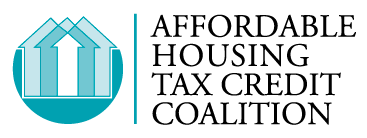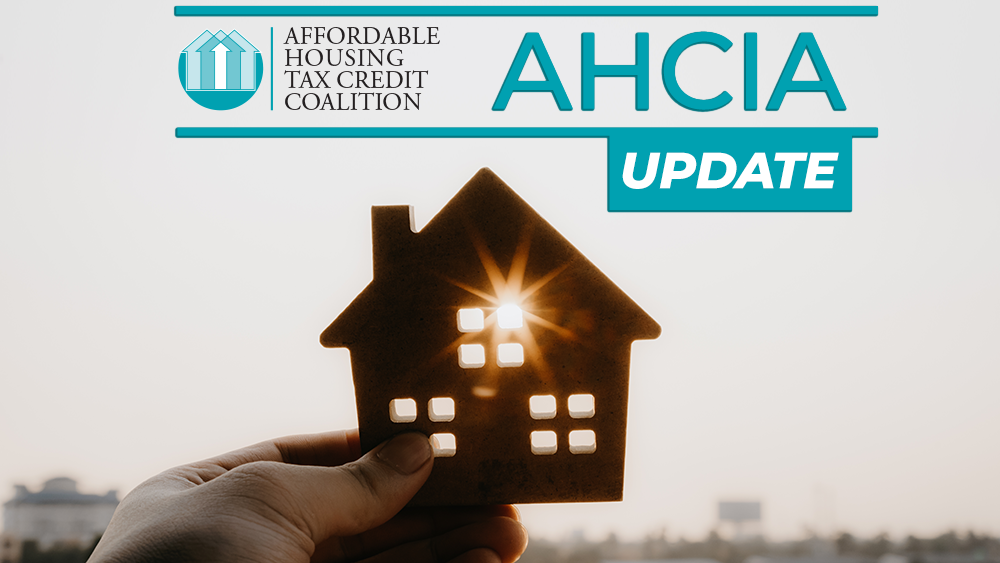The Affordable Housing Tax Credit Coalition today applauded the introduction of legislation in the U.S. House and Senate that strengthens an incentive program that has created millions of homes for low-income households across the nation.
The Affordable Housing Credit Improvement Act (AHCIA) of 2019 (S. 1703 and H.R. 3077), introduced today with bipartisan co-sponsors in both chambers of Congress, will phase in new incentives through the Low-Income Housing Tax Credit that spur housing development in the U.S. at a time when the burden of rental costs impact a growing number of families.
Longtime Housing Credit champion Senator Maria Cantwell (D-WA) introduced the legislation with a speech on the Senate floor, in which she spoke to the great need for for affordable housing and the importance of several provisions within the AHCIA. Co-lead Senator Todd Young (R-IN) and House lead Representative Suzan DelBene (D-WA-1) also discussed the bill’s reintroduction at the AHTCC’s Spring Meeting that morning. Senator Cantwell will also speak later today at the AHTCC’s 25th Annual Charles L. Edson Tax Credit Excellence Awards Ceremony.
“We are thrilled to see bipartisan support for legislation that will increase the development of affordable housing nationwide,” said AHTCC Executive Director Emily Cadik. “Housing costs across the country continue to rise at an alarming rate, and rental housing is simply not produced fast enough to keep up with rising demand. With this legislation, Congress has the opportunity to provide more than 450,000 sorely needed affordable homes over the next decade through an effective housing solution that engages the public and private sectors.”
“More than 10 million households nationwide pay more than half of their monthly income on rent, leaving too little for other expenses like health care, transportation and nutritious food,” said AHTCC Board President Michael Gaber. “Changes proposed in the Affordable Housing Credit Improvement Act will make the financing and development of affordable housing more efficient and effective at a time when our nation’s affordable housing challenges have reached crisis levels.”
See our full statement on the bill’s introduction.
AHCIA is sponsored by Senators Maria Cantwell (D-WA), Johnny Isakson (R-GA), Ron Wyden (D-OR), and Todd Young (R-IN), and Representatives Suzan DelBene (D-WA-1), Kenny Marchant (R-TX-24), Don Beyer (D-VA-8) and Jackie Walorski (R-IN-2).
In the 115th Congress, AHCIA was cosponsored by more than 40 percent of all members of Congress. In 2018 two key provisions were enacted: a 12.5 percent Housing Credit allocation increase for four years (2018-2021), as well as “income averaging,” a provision that provides flexibility to serve a broader range of low, very-low and extremely-low income families. This year’s legislation builds on last year’s bill, and adds several new provisions to strengthen and improve the Housing Credit.
Key provisions reintroduced in the AHCIA of 2019 include: (1) Increase Housing Credit allocations by 50 percent, phased in over five years, to help meet the vast and growing need for affordable housing. This year’s version of the bill includes the allocation increase in both the House and Senate versions. (2) Enact a minimum 4 percent rate to parallel the minimum 9 percent rate already enacted, providing predictability to the marketplace and substantially increasing production by making more developments financially feasible. (3) Enable the Housing Credit to better serve hard-to-reach communities including rural, Native American, high-poverty, and high-cost communities, as well as extremely low-income tenants. (4) Make the Housing Credit a more effective tool for preserving the nation’s existing affordable housing inventory by simplifying and aligning rules.
New provisions in the AHCIA of 2019 that will strengthen the Housing Credit include: (1) Make Housing Credit properties in rural areas eligible for additional credits if needed for financial feasibility. (2) Clarify that Housing Credit and Housing Bonds can be used to develop properties specifically for veterans and other special populations. (3) Better align the Housing Credit with Violence Against Women Act protections. (4) Ensure cost reasonableness is considered when awarding Housing Credits. (5) Enable states to maximize Private Activity Bond affordable housing resources by recycling Multifamily Housing Bonds that are used in conjunction with Housing Credit.
The bill is estimated to incentivize the building of over 450,000 affordable homes over the next decade, and generate $48.5 billion in wages and business income, $19.1 billion in additional tax revenue, and 510,000 jobs.
See a summary of key provisions, the full bill summary, and description of changes between the previous and new versions.
We encourage all AHTCC members to reach out to your members of Congress encouraging them to co-sponsor this legislation. Stay tuned for additional advocacy materials and tools.
If you have any questions, please contact AHTCC Executive Director Emily Cadik at emily.cadik@taxcreditcoalition.org or 202.434.8287.



Comments are closed.